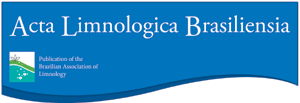AIM: This study aimed to experimentally test the influence of a planktivorous filter-feeding fish (Tilapia rendalli) on the phytoplankton dynamics of a small and shallow tropical reservoir (Lake Monte Alegre, Brazil). Adults of T. rendalli of this lake feed preferentially on phytoplankton, and we hypothesize that: I) adults of T. rendalli will decrease the phytoplankton biomass and composition through direct herbivory, and II) as it is a eutrophic system, fish would not have strong influence on phytoplankton through nutrient cycling. METHODS: To evaluate these different effects on algae, a field experiment was performed in the summer period for 15 days, in mesocosms isolated from the sediment, using a control group (no fish) and a treatment group (with one fish in each mesocosm). Physical and chemical variables and phyto- and zooplankton were evaluated at the start, middle, and end of the experiment. RESULTS: At the end of the experiment, it was observed a significant increase in ammonium concentrations and total phytoplankton biomass, Cyanobacteria and Zygnemaphyceae and all size classes except class II (20-30 µm) in the treatment group (with fish). The biomass increase of the potentially toxic cyanobacterium Cylindrospermospsis raciborskii was also observed in the fish treatment at the end of the experimental period. CONCLUSION: This study did not support both initial hypotheses. It supports the assertion that in tropical water bodies, with similar characteristics to the environment studied, planktivorous filter-feeding fish, such as T. rendalli, are not effective in reducing phytoplankton biomass through direct grazing, even when phytoplankton is one of their main food items. T. rendalli can contribute to the increase of phytoplankton biomass and can promote or increase the eutrophication of aquatic systems.
mesocosm experiment; exotic omnivorous fish; direct grazing; nutrient increase






